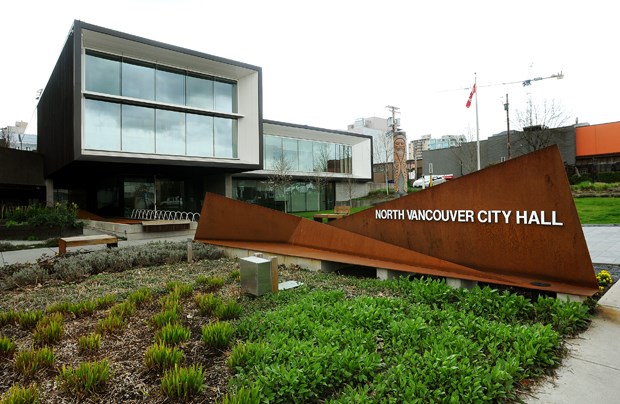When new municipal councils get sworn in next week, some outgoing politicians will be leaving with more than just their political legacies.
Retiring City of North Vancouver Mayor Darrell Mussatto and three outgoing council members are in line to receive one-time, taxpayer-funded retirement packages of between $36,000 and $132,000.
Collectively, city taxpayers will pay the former politicians in the neighbourhood of $270,000 in retirement pay.
Mayor Darrell Mussatto, who has served on council for 25 years, including 13 years as mayor – is entitled to receive the biggest retirement payout of approximately $132,000.
Longtime Coun. Craig Keating – first elected almost 20 years ago – will be in line for about $55,000 in retirement pay. Coun. Pam Bookham could receive retirement pay of about $47,000, while Coun. Rod Clark – who ran unsuccessfully for mayor in the recent election – could be in line for a retirement payout of about $36,000. That’s in addition to a previous retirement stipend of $7,041 Clark was paid in 2005, when he was defeated in a previous bid for the mayor’s chair.
The amount of the retirement pay outgoing council members will be paid is approximate, because the City of North Vancouver refused to provide figures for how much retiring council members are entitled to. That gets calculated and paid out sometime in the three months after councillors leave office, on Nov. 5, according to staff.
The North Shore News calculated the approximate amount of the retirement stipends councillors are entitled to using information on council pay in public statement of financial information reports.
The City of North Vancouver has had retirement allowances for politicians since they were first passed by council in 2005, retroactive to 2002.
The bylaw provides for a retirement stipend to be paid as a lump sum calculated based on what the city pays into a municipal pension plan for its employees and councillors’ total pay received while in office.
Since the bylaw was passed in 2002, the city has paid retirement allowances to seven outgoing council members totalling approximately $122,600. The largest of those payouts were $19,600 to former mayor Barbara Sharp in 2005, $20,800 to outgoing councillor Guy Heywood in 2014 and $25,000 to outgoing councillor Bob Fearnley in 2011.
The city is the only municipality on the North Shore that pays retirement allowances to outgoing politicians.
Some other municipalities in the Lower Mainland do provide retirement allowances. Richmond, Surrey, Delta and New Westminster all provide a retirement allowance calculated similarly to the City of North Vancouver, for instance, while Burnaby pays politicians a retirement benefit on each pay cheque. Some municipalities also have a cap on either the maximum amount of retirement allowance that can be paid to an outgoing politician or a maximum number of years on council that can be considered in the calculation. The City of North Vancouver does not have a cap.
Sanjay Jeram, a professor of political science at Simon Fraser University, said there is rationale for having a retirement allowance for politicians. People tend to leave their careers to go into politics, he said, and may not be able to go back to that same line of work when they are finished.
“If you’re a mayor it’s a full-time job,” he said. “You can’t have another job.”
Jeram said the idea that benefits for politicians should be limited could have the effect of making politics only possible for the wealthy or retired or “people who can afford not to be paid.”
Michael Smith, the outgoing mayor of West Vancouver, won’t be getting a retirement payout and doesn’t think other local politicians should either.
“I think it’s ridiculous. People go into this, it’s public service,” he said. “I don’t understand the mindset of these people.”
Mussatto, Keating and Bookham couldn’t be reached for a comment by press time. Clark declined to comment.
Earlier this year, the board of Metro Vancouver backtracked on voting themselves a retroactive retirement allowance following a public outcry.



